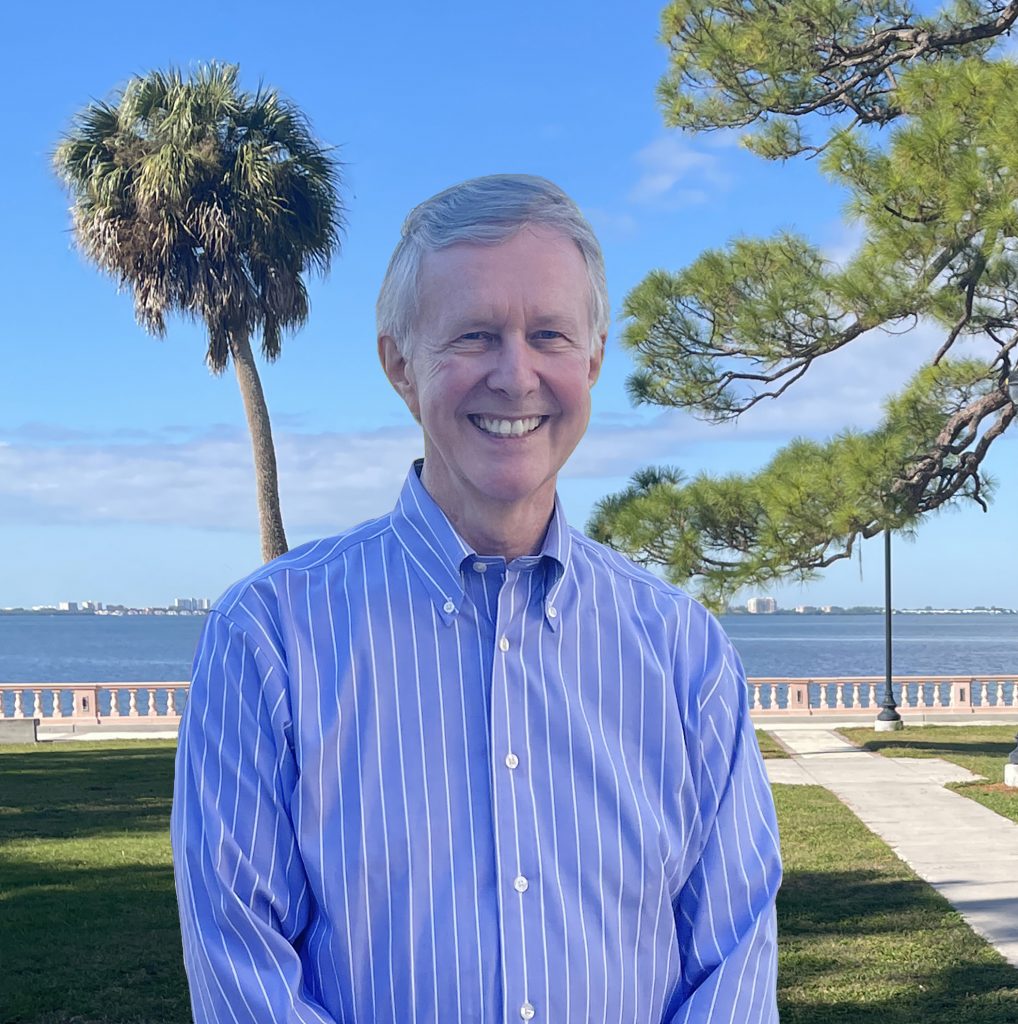Of Serendipity and Philanthropy: A Conversation with Foundation Board Member Chuck Hamilton

Charles “Chuck” Hamilton grew up in a suburb of Chicago, Illinois. When he was in high school, an admissions representative visited his school to talk about a new experimental college—aptly named New College. A school without grades. A school where each student could chart their own path. Hamilton listened with rapt attention.
Back home, he shared his excitement with his parents and, soon after, entered New College’s charter class in 1964. After graduating in 1968 with a triple major in history, philosophy and political science (he completed his thesis on the origins of social security while he was a research assistant at the Federal Reserve Bank of New York), Hamilton later went on to receive his M.B.A. from New York University.
The career that followed has embraced philanthropy, volunteerism and the importance of civil society through Hamilton’s foundation and nonprofit work, board experience and writing. The Bessemer Trust, Clark Foundation, J.M. Kaplan Fund, Center on Philanthropy at Indiana University, and the Albert Einstein Institution are just some of the prestigious institutions for which he served as a top executive.
Earlier, Hamilton launched a successful book publishing company and taught in a New York City public school. Oh—and he’s also an author. In 2019, Hamilton published two volumes of collected essays: Philanthropic Landscapes: The Value of Civil Society and the Practice of Philanthropy (Free Life Editions, July 2019), and Radical Portraits: Seeking Liberty (Free Life Editions, October 2019).
Locally, Hamilton was the founder/adviser for 2017-2018 of the Immigration & Refugees Fund at the Community Foundation of Sarasota County, and he has been a board member of the New College Foundation since 2016. Hamilton is proud of New College’s legacy and determined to help build on that legacy in the future.
How did New College prepare you for your life’s work?
It encouraged experimentation and risk taking. There were no grades or pressure for academic specialization. New College was a true liberal arts college and the opposite of narrow-minded. It gave me an education for life, and a lifetime of curiosity and intellectual exploration. I’ve continued to be a voracious reader to this day. A liberal arts curriculum helps individuals revere knowledge and become entrepreneurs, both in business and intellectually. Learning to take risks and continually expand your knowledge is critically important. That’s what New College teaches, and it’s something we can be proud of.
What got you interested in philanthropy?
It was serendipity, really. I’ve always believed in the power of voluntary action, but I never made a conscious decision to make it my life’s work. I moved to New York City and started out in book publishing. Then an opportunity arose to do publishing for a nonprofit. That morphed into working with several foundations. One thing led to another and I just fell into it.
How do you use your philanthropic expertise for your New College endeavors?
The simplest—if unsophisticated—answer is that I have an incredible amount of experience in the field. The foundation world is very siloed. I knew the philanthropists who gave to nonprofits in New York City, but that doesn’t translate to giving to New College. But my experience does translate. What’s a good place to give to? What isn’t? And how do you know? I don’t have all the answers but I know what questions to ask.
You’ve said that the key to success is “humility in the presence of passion.” How would you define humility?
Suspecting that I’m often wrong and that evidence matters and is also often ambiguous. Taking other people seriously and actually listening to them is critically important. If I have all the answers, why should I listen to you?
What is the right question to ask?
How can New College be more helpful to the community? The second question is: when we do help the community, how can we get the word out? Our students—and alums, who are living in or returning to the area—have always been involved in various area nonprofits, businesses and initiatives. We’re not always good at communicating our value to the region, although that’s changed in the last five years. The case to be made for New College and the liberal arts still isn’t as strong as it should be.
Why is community standing important for a nationally-recognized college?
Ethically, it’s just being a good neighbor. Financially speaking, local donors are incredibly important. New College is only 60-plus years old. We don’t have the kind of alumni base that big colleges and universities have. Community and regional support are essential to our future.
What is your wish list for New College’s immediate future?
Oh, the obvious things. Maintaining a balance between local students and national and international students. Broadening the base of the student body. Work needs to be done on dorms. There’s also room for more online learning. Maintaining our liberal arts focus and a commitment to learning and tolerance is paramount. Thanks to that focus, New College has a huge cohort of graduates who have gone on to receive Fulbrights, for instance, but also all kinds of business, nonprofit and academic success. That’s our legacy in the past. My greatest wish is that we continue to build that legacy in the years to come.
For more information on the New College Foundation, visit ncf.edu/alumni-and-friends/the-foundation.
Marty Fugate is a contributing writer for the Office of Communications & Marketing.
